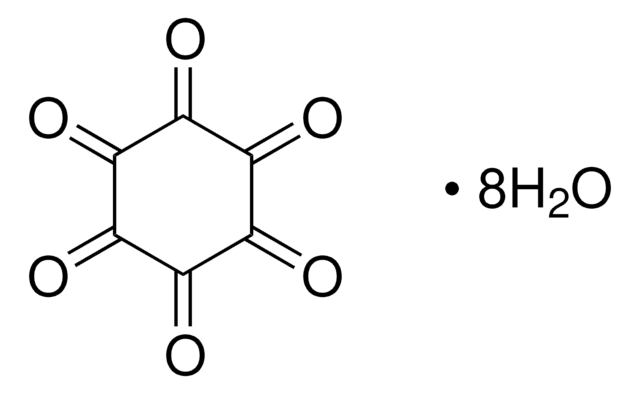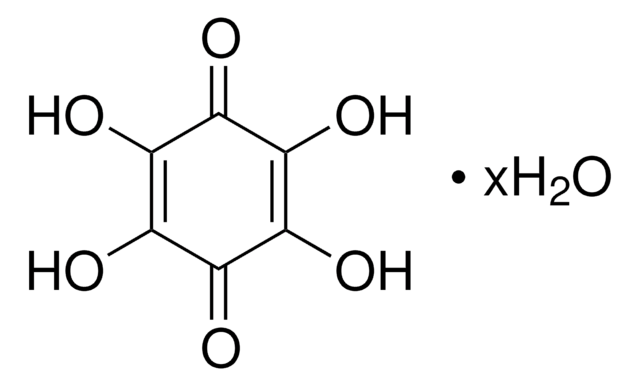Wichtige Dokumente
764957
Dipyrazino[2,3-f:2′,3′-h]quinoxaline-2,3,6,7,10,11-hexacarbonitrile
95% (HPLC)
Synonym(e):
1,4,5,8,9,11-Hexaazatriphenylenehexacarbonitrile, HAT-CN6
About This Item
Empfohlene Produkte
Qualitätsniveau
Assay
95% (HPLC)
Form
powder or crystals
mp (Schmelzpunkt)
>500 °C
SMILES String
N#CC1=NC2=C(N=C1C#N)C3=C(N=C(C#N)C(C#N)=N3)C4=C2N=C(C#N)C(C#N)=N4
InChI
1S/C18N12/c19-1-7-8(2-20)26-14-13(25-7)15-17(29-10(4-22)9(3-21)27-15)18-16(14)28-11(5-23)12(6-24)30-18
InChIKey
DKHNGUNXLDCATP-UHFFFAOYSA-N
Verwandte Kategorien
Anwendung
Lagerklassenschlüssel
11 - Combustible Solids
WGK
WGK 3
Flammpunkt (°F)
Not applicable
Flammpunkt (°C)
Not applicable
Hier finden Sie alle aktuellen Versionen:
Analysenzertifikate (COA)
Die passende Version wird nicht angezeigt?
Wenn Sie eine bestimmte Version benötigen, können Sie anhand der Lot- oder Chargennummer nach einem spezifischen Zertifikat suchen.
Besitzen Sie dieses Produkt bereits?
In der Dokumentenbibliothek finden Sie die Dokumentation zu den Produkten, die Sie kürzlich erworben haben.
Kunden haben sich ebenfalls angesehen
Unser Team von Wissenschaftlern verfügt über Erfahrung in allen Forschungsbereichen einschließlich Life Science, Materialwissenschaften, chemischer Synthese, Chromatographie, Analytik und vielen mehr..
Setzen Sie sich mit dem technischen Dienst in Verbindung.



![Pyrazino[2,3-f][1,10]phenanthroline 99% (HPLC)](/deepweb/assets/sigmaaldrich/product/structures/226/341/31d3909e-6700-4a3e-bfb3-9ed1f6b66ee2/640/31d3909e-6700-4a3e-bfb3-9ed1f6b66ee2.png)







![4,4′,4′′-Tris[phenyl(m-tolyl)amino]triphenylamine 98.0%](/deepweb/assets/sigmaaldrich/product/structures/370/101/1022653f-ed3b-4991-a82c-269ad710b908/640/1022653f-ed3b-4991-a82c-269ad710b908.png)
